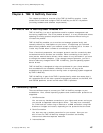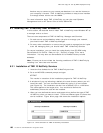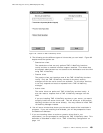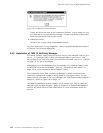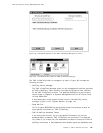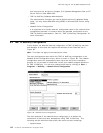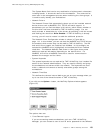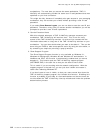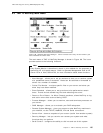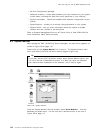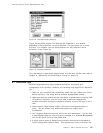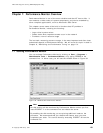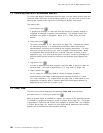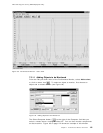This soft copy for use by IBM employees only.
workstations. The next time you access the same workstation, TME 10
NetFinity will automatically provide the same user ID and password that was
specified on your first connection.
This might be risky, because if somebody else gets access to your managing
workstation, they can access your clients without providing a user ID and
password.
If you select Force Remote Logons, you are not able to save the user ID and
password. Therefore, every time you access another workstation you will be
prompted to provide a user ID and a password.
2. Service Execution Alerts
With this selected, whenever a TME 10 NetFinity manager accesses your
workstation, TME 10 NetFinity will send an alert. This is true for every
access of the TME 10 NetFinity services. An alert will be created with the
information about who is using one of the TME 10 NetFinity services on your
workstation. You can then decide what you want to do about it. This can be
done using an EXEC to take some specific action by using the alert editor, or
by something as simple as providing a pop-up window.
3. Show Support Program
The Show Support Program function is only available on Windows 3.1,
Windows for Workgroups, Windows 95 and Windows NT workstations. In
NetWare and OS/2, this function is automatically enabled and you cannot
deselect it. This function puts the TME 10 NetFinity support program
(NETFBASE.EXE) in the task list so that you are able to shut it down.
This is useful if you are working with the network configuration. With the
support program in the task list, you can just shut it down and restart it,
rather than rebooting Windows NT.
If you don′t want to have it visible, so that your users cannot shut down the
TME 10 NetFinity support program, don′t enable this function. Disabling this
function is probably a good idea on client workstations so that the users do
not shut down the TME 10 NetFinity client by mistake and hinder the problem
determination process.
114 PC Server and Windows NT Integration Guide




